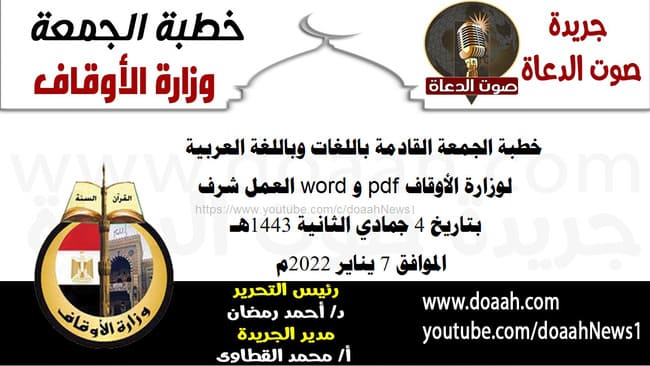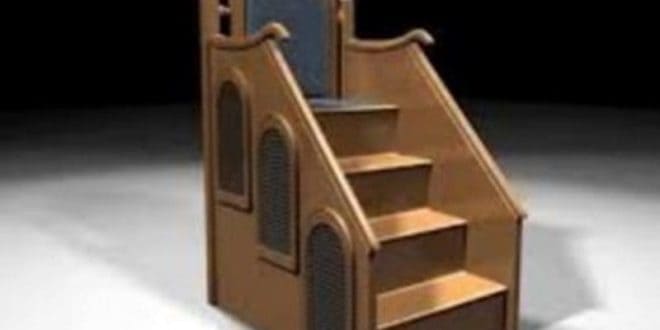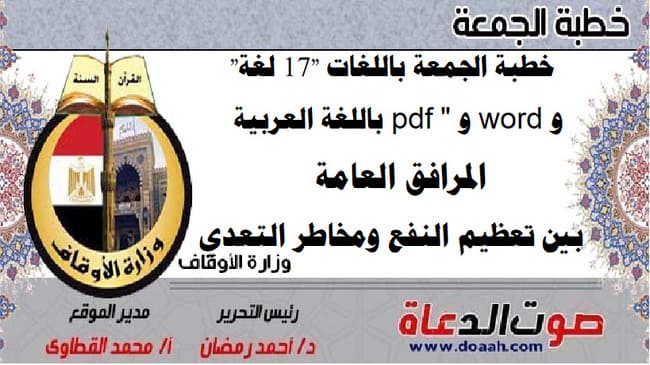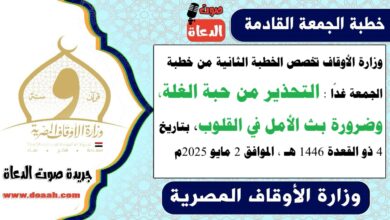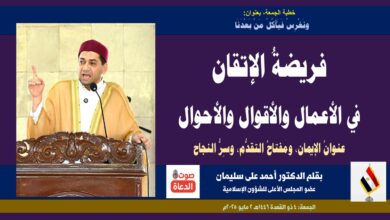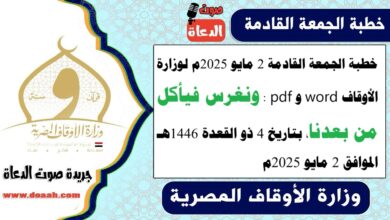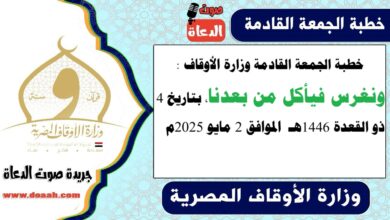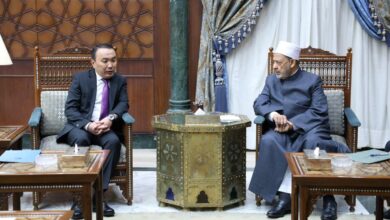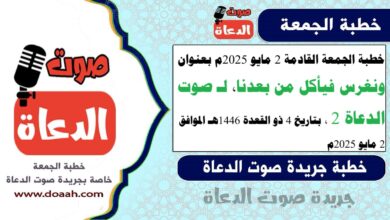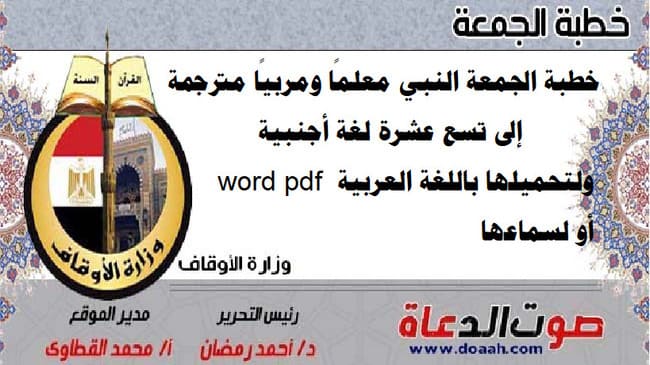The Prophetic Sunnah, and Its Position in the Legislation
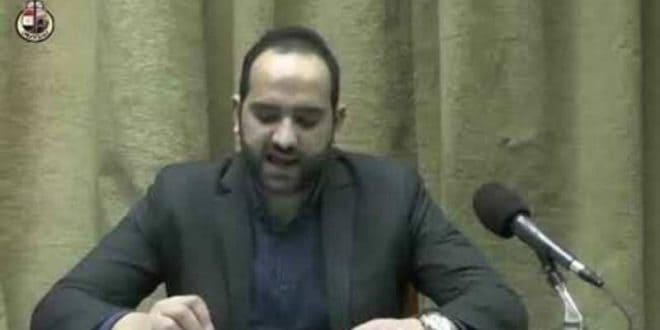
The Prophetic Sunnah, and Its Position in the Legislation
خطبة الجمعة القادمة لوزراة الأوقاف المصرية والخطبة المسموعة باللغة الإنجليزية : السنة النبوية المشرفة ومكانتها في التشريع ، بتاريخ 21 فبراير 2020 م ، 27 جمادي الثانية 1441 هـ .
video
All praise is due to Allah, the Lord of all worlds, Who says in His Ever Glorious Book, “So accept whatever the Messenger gives you, and abstain from whatever he forbids you. Be mindful of Allah: Allah is severe in punishment.” I bear witness that there is no god but Allah, and that Muhammad is His Servant and Messenger. May Allah’s Peace and Blessings be upon him, his Household, Companions and upon those who follow their path to the Day of Judgment.
The Almighty Allah sent His Messengers and Prophets (peace be upon them) to guide humans, and lead them out from darkness into light, and from the path of deviation into the path of salvation and success. Allah (Glory be to Him) says, “We sent Our messengers with clear signs, the Scripture and the Balance, so that people could uphold justice.” Allah has sealed the Divine Messages with Prophet Muhammad who was, as the Almighty Allah said, “O Prophet, We have sent you as a witness, as a bearer of good news and warning, as one who calls people to Allah by His leave, as a light-giving lamp.” His (PBUH) Message was the last one which is suitable for all times and places. The Prophet (PBUH) received the Glorious Qur’an, a miraculous book that shall be kept save from any falsehood. In addition, Allah revealed to him the Sunnah as an explanation for the Qur’an. The Almighty Allah said, “He does not speak from his own desire. The Quran is nothing less than a revelation that is sent to him.” Also, He (Glory be to Him) Said, “We have sent down the Reminder to you too [Prophet], so that you can explain to people what was sent for them, so that they may reflect.”
When one reviews the Book of Allah, he will find that Allah combines between His commands and the commands of the Prophet (PBUH) in more than one position. Allah Said, “Believers, respond to Allah and His Messenger when he calls you to that which gives you life.” Moreover, Allah, Most Exalted, mentioned His pleasure along with the pleasure of the Prophet saying, “If they were true believers, it would be more fitting for them to please Allah and His Messenger.”
Also, the Almighty Allah mentions obeying Allah’s commands along with obeying the commands of the Prophet saying, “Whoever obeys the Messenger is an obedient to Allah,” and said in another verse, “and obey Allah and the Prophet so that you may be given mercy.” Obeying Allah is achieved through obeying the Sunnah of the Prophet (PBUH), as Allah said, “Say, ‘If you love Allah, follow me, and Allah will love you and forgive you your sins; Allah is most forgiving, most merciful.’”
Muslim scholars unanimously agree on the authority of the Sunnah, and that Sunnah is the source of legislation that comes second to the Qur’an. Allah said, “Allah has sent down the Scripture and Wisdom to you, and taught you what you did not know. Allah’s bounty to you is great indeed.” Allah also said, “Remember what is recited in your houses of Allah’s revelations and wisdom, for Allah is All Subtle, All Aware.” The Prophetic Sunnah includes the sayings, actions and tacit approvals of the Prophet (PBUH), for the Almighty Allah said, “The Messenger of Allah is an excellent model for those of you who put your hope in Allah and the Last Day and remember Him often.” This covers all conditions of the Prophet (PBUH). Abdullah Ibn Amr Ibn Al-‘As said, “I used to write everything which I heard from the Messenger of Allah (PBUH). I intended (by it) to memorize it. Quraysh tribe prohibited me saying: Do you write everything that you hear from him while the Messenger of Allah (PBUH) is a human being: he speaks in anger and pleasure? So I stopped writing, and mentioned it to the Messenger of Allah (PBUH). He signaled with his finger to him mouth and said: Write, by Him in Whose hand my soul lies, only right comes out from it.”
Thus, the Glorious Qur’an is the first source of legislation, and the Sunnah is the second source; it provides explanation and clarification for the Qur’an, because the Prophet (PBUH) is the best one to understand the meaning of Allah’s speech and wisdom. The Qur’an tells us, “When Allah and His Messenger have decided on a matter that concerns them, it is not fitting for any believing man or woman to claim freedom of choice in that matter.” Allah also said, “By your Lord, they will not be true believers until they let you decide between them in all matters of dispute, and find no resistance in their souls to your decisions, accepting them totally.” Another Qur’anic verse says, “And when they hear news of security or fear, they publicize it. Had they referred it to the Messenger or their authorities, those with sound judgment among them would have validated it.” Allah warned us against disobeying the commands of the Prophet (PBUH) saying, “Let therefore those who oppose His commandment beware lest there befall them a trial or there befall them a torment afflictive.”
The Prophetic Sunnah has detailed many undetailed provisions in the Qur’an. For example, the Qur’an gives us general commands about performing Prayer, Zakat. Allah said. “Perform Prayer and pay Zakat!” So, how should we perform these pillars of Islam namely, Salah, Zakat, and Hajj, without the explanation from the Sunnah? The Prophet (PBUH) detailed these obligations through his practices and said, “Perform prayers in the way you saw me performing my prayers.” The Prophet (PBUH) explained prayer in his statements and actions. For example he said, “When you stand for Prayer say Takbir and then recite from the Qur’an (of what you know by heart) and then bow till you feel at ease. Then raise your head and stand up straight, then prostrate till you feel at ease during your prostration, then sit with calmness till you feel at ease (do not hurry) and do the same in all your prayers.” Sunnah has elaborated on many types and rulings of Zakat; it defined the Nisab (i.e. the minimum level at which one should give out Zakat). It also explained all the Shari rulings on Hajj; a point which is crystal clear in the Hadith of the Prophet (PBUH), “learn your rituals of Hajj from me.” Also, when a man came to our master ‘Imran Ibn Husayn (Allah be pleased with him) and said, “What are these Hadiths you tell people about while leaving the Quran behind?” ‘Imran replied, “Assume that you and your colleagues have consulted the Quran, how would you have found the numbers of the raka‘at of the noon prayer and the afternoon prayer …”
In the same way the Sunnah details verses with general meanings, it also restricts verses with absolute meanings. For example, it instructs that there is no bequeath over 1/3 of the estate and that there is no bequeath to an already heir. In this regard, Sa‘ad Ibn Abi Waqqas (Allah be pleased with him) said, “The Prophet (PBUH) visited me at Mecca while I was ill. I said (to him), “I have property; May I bequeath all my property in Allah’s Cause?” He said, “No.” I said, “Half of it?” He said, “No.” I said, “One third of it?” He said, “One-third (is alright), yet it is still too much, for you’d better leave your inheritors wealthy than leave them poor, begging of others. Whatever you spend will be considered a Sadaqa for you, even the mouthful of food you put in the mouth of your wife. Anyhow Allah may let you recover, so that some people may benefit by you and others be harmed by you.” In the same connection, it shows that there is no bequest for an heir; the Prophet (PBUH) said, “there is no bequest for an heir.”
The Sunnah furthermore shows that it is prohibited for a man to gather between a woman and her paternal or maternal aunt in marriage; Prophet Muhammad (PBUH) said, “A woman should not be married to one who had married her paternal aunt or a paternal aunt …”
With that said, I ask Allah to forgive me and you
>>>>>>>>>>>>>>>>>>>>>>>>>>>>>>>>>>>>>>>>
All praise is due to Allah, Lord of the Worlds; I bear witness that there is no god but Allah; and I bear witness that our master Prophet Muhammad is His slave and Messenger; may Allah’s Peace and Blessings be upon him, his family, companions and whoever follows their guidance to the Day of Judgment.
Muslim brothers,
Stressing the status, authenticity and high rank of the Sunnah in the Islamic legislation, we should differentiate between the recommended acts of worship and habits that differ from one time to time and one place to place. People’s habits might include dressings, means of transportation and all what may be seen as belonging to ‘urf. That is because every time has its own habits that differ from their counterparts in the previous one. It is thus inconceivable to force people to adopt a particular habit in travelling, dressing or food under the pretext of following the Messenger of Allah (PBUH), because habits are mainly based on ‘urf and what suits the era and the environment unless it opposes the well-established rulings of the pure Sharia. So, when Imam Al-Shaf‘i, may Allah have mercy upon him, views the head cover as one of the chivalry requirements, he did so because this suited his environment and era. Yet, out of the fact that customs and traditions do not deny the head cover today, we find no harm in that.
In this vein, we stress that the fiercest enemies of the Sunnah are of two kinds; first: those who trade with religion, deviate it and corrupt the meanings of the texts to achieve special goals. This category might shed the blood and wipe out everything, wrongly believing that they are doing good while religion is totally innocent from them. There are also the extremists whom the Prophet (PBUH) warned us against as he said, “Beware! The extremists perished,” saying it three times.” In the same connection, ‘Umar ibnj Al-Khattab (may Allah be pleased with him) narrated that the Messenger of Allah (PBUH) said, “The thing I fear most for my Ummah is every hypocrite with an eloquent tongue.”
As for the second category, it includes those who do not carefully study knowledge or are fully acquainted with its tools. Prophet Muhammad (PBUH) showed that they are of great danger, affirming, “Verily, Allah does not take away knowledge by snatching it from the people but He takes away knowledge by taking away the scholars, so that when He leaves no learned person, people turn to the ignorant as their leaders; then they are asked to deliver religious verdicts and they deliver them without knowledge, they go astray, and lead others astray.”
So, the purified Sunnah of the Prophet is innocent from any extremism that might defame its tolerance and moderation. It is furthermore totally innocent from that kind of extremism that totally denies it; Prophet Muhammad (PBUH) said, ” Soon there will come a time that a man will be reclining on his pillow, and when one of my Hadiths is narrated he will say: ‘The Book of Allah is (sufficient) between us and you. Whatever it states is permissible, we will take as permissible, and whatever it states is forbidden, we will take as forbidden.’ Verily, whatever the Messenger of Allah (PBUH) has forbidden is like that which Allah has forbidden.”
Extremism and negligence are some kind of extremism that is far away from the moderate course and methodology of Islam. Besides, it is sheer injustice against the Prophetic Sunnah that is totally identical to the ultimate objectives of the Quran. In fact, understanding the objectives of the Sunnah correctly means that we became fully aware of the objectives of our religion, which is all just, all merciful, all tolerant, all ease and all human. Well-versed scholars, in the past and the present, are of the opinion that what realizes these ultimate objectives of religion is undoubtedly an indispensible part of religion, and that what opposes them actually opposes Islam and its objectives and goals.
At that point, we should highlight the big role played by full-fledged scholars in correcting the misconceptions of the misguided and deviated people; a point which is crystal clear in the Hadith of the Prophet (PBUH) wherein he (PBUH) said, “This religion will be carried in every generation by the most balanced people. They will refute the misquotations of the extremists and the plagiarisms of the nullifiers and the interpretations of the zealots.”
We are in a dire need to understand the Sunnah of the Prophet (PBUH) through its objectives and not to restrict ourselves to the literal interpretation of the texts without understanding its objectives. This is actually realized through understanding the purified Prophetic Sunnah in light of that era’s requirements, so that we could cope with the spirit and developments of time. In this way, we will conveying the Sunnah to people, which is the innovation aspired for by the Sunnah itself as is crystal clear in the Hadith of the Prophet (PBUH) wherein he said, “Allah will raise for this community at the end of every hundred years the one who will renovate its religion for it.”
O Allah! Guide us to correctly understand Your Book and the Sunnah of Your Prophet (PBUH); teach us what benefits us; make us incur benefit from what you taught us; protect our country and all the World’s countries.
_____________________________
للإطلاع علي قسم خطبة الجمعة باللغات
للإطلاع ومتابعة قسم خطبة الأسبوع
للمزيد عن أسئلة امتحانات وزارة الأوقاف


